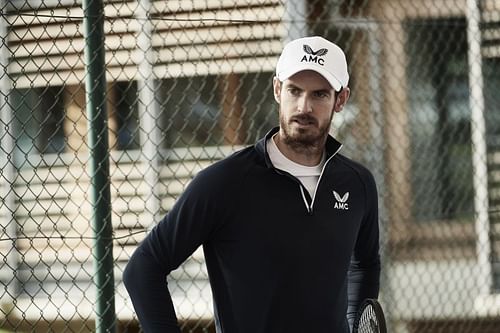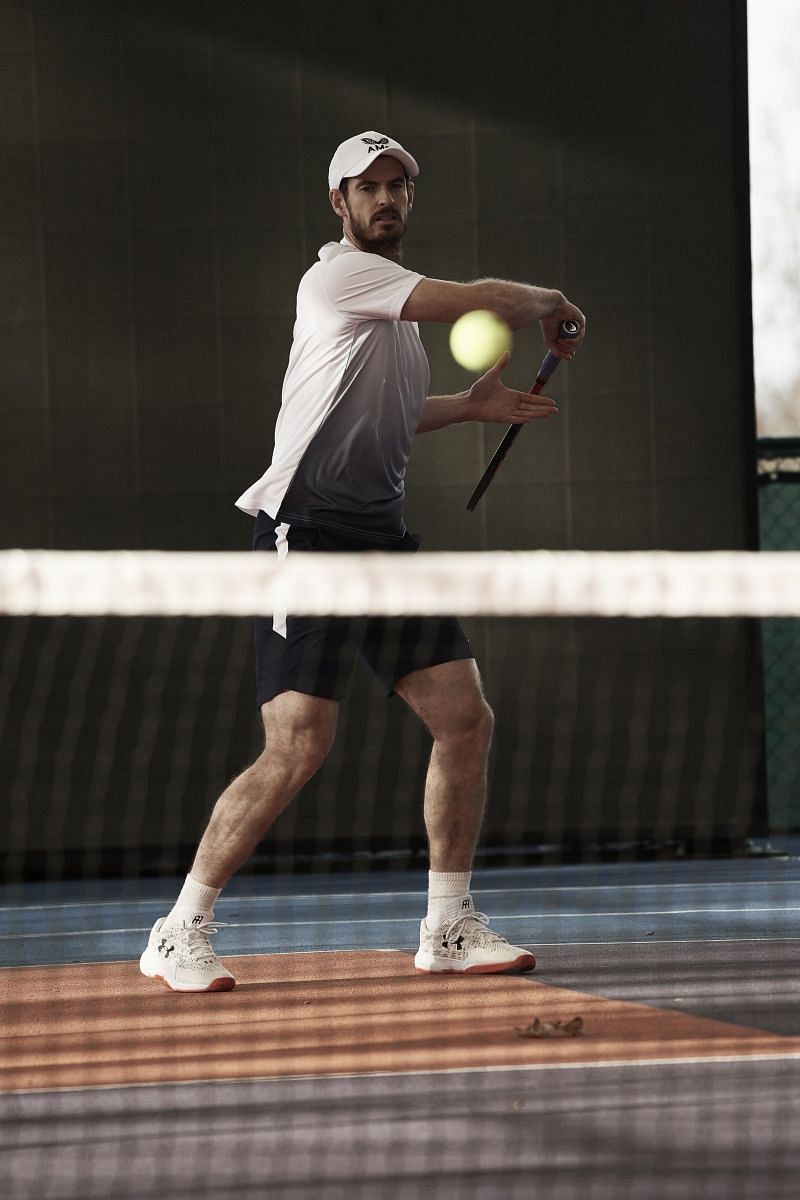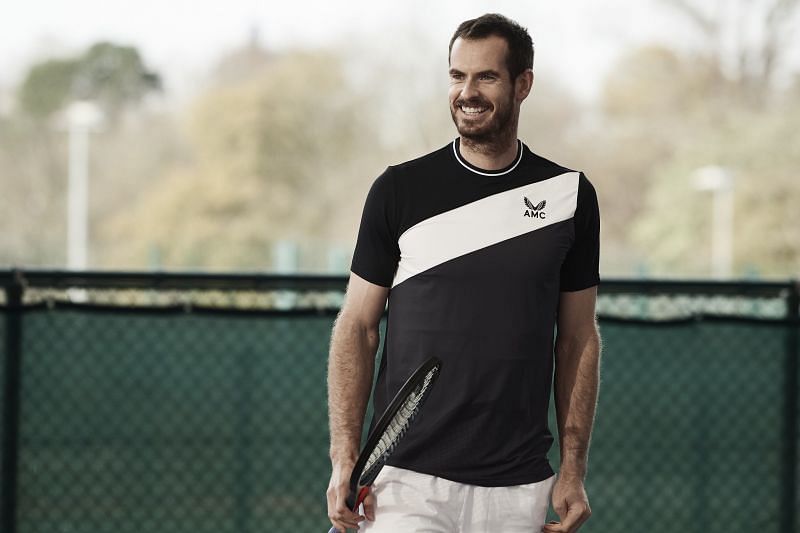
"My main focus is the Olympics" - Andy Murray speaks about his goals & fitness levels, Federer's comeback, Djokovic's AO win & more

Andy Murray has provided tennis fans with a slew of epic battles over the course of his 15-year career, and also taken them on plenty of emotional rollercoasters along the way.
As almost everyone knows, Murray boasts of an all-time great resume; he has won three Grand Slams, two Olympics singles gold medals, and a stirring Davis Cup title with Great Britain. But along with those highs there have also been some heartbreaking losses, serious injuries and tear-jerking press conferences.
The Scot is not done yet though. After two hip surgeries and several interruptions to his schedule, Andy Murray is back on the ATP tour with the firm belief that he can still compete with the best in the game.
In a recent exclusive interview with Sportskeeda, Murray spoke at length about what drives him to continue competing, his goals for the 2021 season, and his plans post his tennis career.
The 33-year-old also talked about Novak Djokovic's recent Australian Open triumph, Roger Federer's long-awaited comeback to the tour and the far-reaching impact of tennis' newest superstar Naomi Osaka.
Here are the excerpts from the interview:
Sportskeeda: You have won three Grand Slam titles and two Olympics medals, and have also been ranked World No. 1. But in recent times you have had to go through two very difficult surgeries, making many wonder how much longer you can keep playing. What keeps you motivated to continue competing on the tour, despite all the hardships involved?
Andy Murray: I still love playing the game. It’s my biggest motivation. It’s what makes me get up in the morning and keep training hard. It’s all I’ve ever known and I think facing retirement helped me realize how much passion I’ve still got to keep going. I knew I just wasn’t ready to give up.
SK: What would you say is your biggest goal for 2021, aside from being healthy and playing a full schedule?
Andy Murray: This year, my main focus is the Olympics. I’m very proud of my gold medals, so it would be great to get the opportunity to defend those. I’m training hard to be in Tokyo for whatever format the Games ends up taking.

SK: You reached the final at the ATP Biella Challenger, and then played Montpellier and Rotterdam too. It's been a while since you played three events in the span of a month. How have you been feeling physically after traveling so much and playing back-to-back events?
Andy Murray: Physically, I’m feeling good. My hip isn’t giving me any pain anymore and I’m happy with how I’m moving on court. I trained really hard in the run up to Biella so I’m the fittest I’ve felt for a long time. I'm keen to play as many matches as possible at the moment, as match practice is what I’m lacking most right now.
Most athletes have niggles and aches and pains all the time, but compared to what I went through in 2018 I’m doing pretty well. I’m also much better at recognizing when I need to rest and recuperate these days, so building that into my routine has helped.
SK: You had a good first-round win in Rotterdam over Robin Haase, before going down to Andrey Rublev in the second round. Can you describe how the tournament, as a whole, felt for you?
Andy Murray: Rotterdam was a bit mixed for me. I was pleased I was able to win the match against Robin Haase because there were periods where I wasn’t playing my best, so mentally it was good to be able to fight on and get the win.
(But) the match against Rublev was tough. I made a few errors at key points and at that level, you can’t do that. It was frustrating but I will learn a lot from that match. I know where I need to make improvements, so hopefully I can work on those in the next few weeks.
SK: You have been associated with several business ventures outside the tennis circuit in recent years. Can you tell us a little more about that, and how you envisage your post-tennis career to go?
Andy Murray: Yes, I have a few business interests I’m working on outside of tennis. In 2013, I bought a hotel in Scotland, called Cromlix. It’s a very special place to me. It’s three miles from Dunblane, which is where I grew up so I love going back there whenever I can. It’s where Kim and I got married so we’ve got some great memories of the hotel from that day.
We renovated the entire property when we bought it, but tried to maintain its authentic Scottish feel so it’s a very warm and inviting place to stay. There is also a loch, a Chez Roux restaurant and of course, a tennis court.
I also have my own management company - 77 Sports Management - which mentors up-and-coming sporting talent. I’d had mixed experiences with agents over the years, so I wanted to set up a company that really put the interests of athletes first.
We are now working with four tennis players (Aidan McHugh, Katie Swan, Paul Jubb and Harriet Dart), six footballers (Caroline Weir, Ryan Porteus, Fraser Murray, Jack Harkness, Miller Thomson and Jamie Gullan) and two sprinters (twin sisters, Shannon and Cheriece Hylton).
We also launched my clothing range, AMC, at the end of 2019 – it was something I’d wanted to do for a long time. I had felt that there was a gap in the market for performance tennis clothing that was also stylish - clothing that you would wear off court as well as on. I’m pretty proud of the direction it’s going in.

SK: Would you ever consider taking up the role of coaching a player on the tennis tour? Or the role of British Davis Cup captain, perhaps?
Andy Murray: Yes, it’s something I would consider. At the moment, I’m trying not to think too far beyond my own playing career, but I’m sure I’ll end up staying in tennis in some form or another. I’m sure I’ll also want a bit of time off to spend with my family when I finish playing.
SK: You have had incredible battles against Novak Djokovic, Rafael Nadal and Roger Federer in your career. What, in your opinion, makes them so tough to beat?
Andy Murray: With any great player, I think it’s a mix of incredible talent, mental strength, single-minded focus, determination and a lot of hard work. They’ve all got good teams around them too which really helps.
I also think that because tennis is such a mental game, the experience they have is a big factor now too. They are able to draw on that against the younger players, and (thus) still dominate the game.
SK: What do you think the younger players like Dominic Thiem, Alexander Zverev, Stefanos Tistispas and Daniil Medvedev need to do to start beating the Big 3 consistently at the Slams? Is it just about self-belief, or would you say they need something more?
Andy Murray: It’s obviously extremely difficult to win a Grand Slam, and unfortunately, most people judge success in tennis by that benchmark. Sometimes you need a bit of luck, alongside all the talent and hard work, to get you across the line.
SK: Novak Djokovic recently won the Australian Open amid some very difficult circumstances. Do you feel this triumph has silenced the critics who have been hounding him over the last year or so?
Andy Murray: It was a great win for Novak, and it showed that he is still at the top of his game. To win a tournament eight times is an amazing achievement, and it should have (already) silenced all of his critics.
SK: You returned to the tour after a major surgery, which forced you to take a long break. Roger Federer, who is a few years older than you, is slated to make his comeback in Doha this week after two knee surgeries and more than a year away from the game. How do you rate his chances on his comeback?
Andy Murray: Coming back to the game after a long break is challenging. You are battling to regain your match fitness, and you need match practice to help you go deep into tournaments. I’m sure Roger’s team are working hard to make sure he is ready to come back at the right time, and I'm sure he’ll be looking to compete at the highest level as quickly as possible once he’s back.
SK: You have been a long-serving champion of equal rights in the tennis world. What do you think of Naomi Osaka and her efforts to become the leading voice of her generation in that regard?
Andy Murray: I didn’t set out to be an equal rights champion, but I do speak out if I think something is wrong. And that’s what Naomi did too. She used her platform to call out issues she felt really strongly about. It’s great to see her making an impact on a global stage and using her voice on such an important topic.